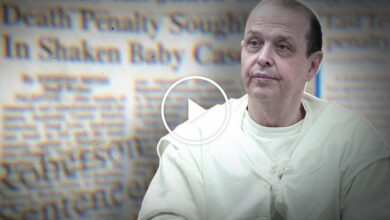
The term “frank” is of course French. It comes from the Old French word “franc,” and the medieval Latin “francus,” meaning “freely, uninhibitedly outspoken.” That’s what this presentation aimed to be with its challenging imagery — blood and fire were everywhere. Usually, the Opening Ceremonies are candied and cloying, with hackneyed sequences of stuffed-animal mascots dancing with children, and the ever-obligatory chrysalis and butterflies. Sometimes these things go entertainingly or queasily wrong. Doves were grilled alive in the cauldron of the Olympic flame in Seoul in 1988. A giant baby formation in London in 2012 looked more like a swollen monster in a sand dune, and most notoriously, in Hitler’s 1936 Berlin Games, thousands of pigeons were released only to be startled by cannon fire.
This was purposefully disturbing. There were no pixies prattling songs about peace in Paris. The Conciergerie, prison to Marie Antoinette, spouted ribbons of blood and red smoke from its windows, while a metal band clanged like iron doors slamming. The subjects of great paintings burst out of the frames to peer like inmates from windows of museums. An armored horsewoman, one part Joan of Arc and one part robot, clattered down the Seine as if charging to battle, bearing — the flag of peace?
John Lennon and Yoko Ono’s “Imagine” played on a piano in flames. The pages of great works were torn from books and thrown into the wind. Human puppets swayed over a Pont like wraiths of those who had been staked there.
Dashing through it all was the torchbearer, his identity unknown. He was meant to be an amalgam of French characters and totems: the Man in the Iron Mask from Dumas, the Phantom of the Opera, Ezio from Assassin’s Creed, the wolfishly named thief and master of disguise Arsène Lupin, and Belphegor, or as Victor Hugo described him, Hell’s Ambassador. All of them fugitives from autocratic imprisonment or isolation in deep chambers, ostracized as monsters in belfries and underground cisterns.
France’s literature, music and philosophy are drenched in this stuff — idealists crushed at the barricades, bayed to death by Javert fanatics or head-seeking throngs, driven to dungeons from which they seek to break out into open air. This culture does not lend itself to cloying clichés. There is no escaping the buried truth of it — especially during this Olympics, an exercise taking place right on the cobblestones. By the way, there really is a large hidden lake beneath the opera house.
The Olympics are not especially truthful exercises, apart from the feats and emotions of the athletes. The Olympic Truce? Surely that’s a joke. The Games have become the world’s largest marketing mechanism and a safehouse for dictators’ dirty money. The International Olympic Committee has functioned as financier and enabler of autocrats with world-destructive designs as bloody-minded as any historical tyrant. The Sochi Games of 2014 provided lovely cover for Vladimir Putin’s illegal annexation of Crimea.
And yet — the truce can be real. The ancient “Ekecheiria,” the original truce among Sparta, Elis and Pisa to allow safe conduct for the Greek city-states to compete in and watch the games, was not a myth. It was brought back in 1993, in the form of a United Nations resolution. And it has held, for the most part.
In any other place or year, the Olympic Truce would seem like another ceremonial banality or marketing trope, cheap as a fabric butterfly. In this one, it seems as needed as one of those operatic voices from the balconies and rooftops over the Seine.
Paris is the most direct challenge to the truce in more than a half-century, since the still grief-inducing 1972 slaughter of Israeli athletes in Munich. Can you hold an urban Olympics amid multiple wars, in a city teeming with contingents from all sides, including some of the largest Jewish and Muslim communities in Europe, at a time when threats have multiplied and perhaps are no longer containable? A belligerent state like Russia launching a shock invasion seems a neat problem compared with the overflowing extragovernmental actors shouting homicide in the Middle East, and their flash-mob supporters around the globe.
Beach volleyball at the base of the Eiffel Tower, equestrian events at Versailles, skateboarding at the Place de la Concorde. The security complexities are incomprehensible. It’s not clear that any amount of manpower, drones, intelligence and technology can protect a plein air venue if someone chooses to act. Paris will therefore have to rely at least to a certain extent on something uncertain and ethereal: the goodwill of the attendees. The truce.
It’s a fearsome risk Parisians are taking, and a profound act of courage. That was the message of those extraordinarily dark and apprehensive, yet soaring, Opening Ceremonies, led by their spectral bearer. Staged in Paris, the spectacle was intended for the global television audience and seemed to say, “Learn from us. We’ve had our heads and our hearts broken for thousands of years, but we’ve found our way to civilized culture, because we choose not to hide or dispute our dank past, but to marry it to modernity. We have blood in the deep ancient cracks of our streets and the hidden dungeons where people were manacled in the cistern-seeping dark. Yet despite all those violent epochal fractures, here is our country, at peace enough to host you.”
So, what will you bring us, the torchman asked? A flame, or fire? Light, or burning?
Read More


